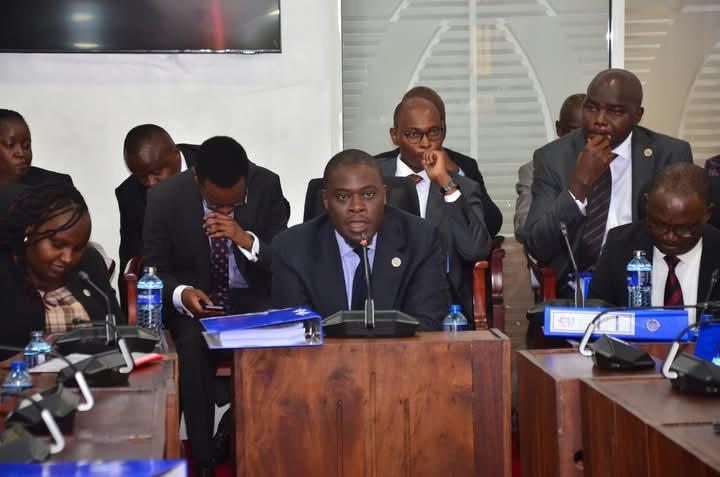Nairobi City County Governor Johnson Sakaja defended his administration’s water management record before senators, as lawmakers grilled him over Sh11 billion in outstanding receivables and massive water losses plaguing the capital’s supply system.
The Senate County Public Investments & Special Funds Committee, Chaired Senator Gofrey Osotsi (Vihiga), confronted Sakaja with audit findings showing 51 percent of water produced—valued at Sh8.6 billion—disappeared through the distribution network. “Governor, auditors say 51 percent of water produced—worth Sh8.6 billion—simply vanished. How do we explain this to rate-payers?” Osotsi demanded during the heated session.
Sakaja attributed the losses to inherited infrastructure problems, telling senators his government has allocated Sh9.2 billion in the 2024/25 budget for urgent repairs. “We inherited antiquated pipes and deferred capital works. We have now ring-fenced Sh9.2 billion in the 2024/25 budget for meter sealing, leak detection and pipeline rehabilitation, plus AFD and FD projects already underway,” the governor explained.
Senator Edwin Sifuna (Nairobi) pressed Sakaja on debt recovery efforts, noting that Sh11 billion in receivables has remained outstanding for over 480 days. “Sh11 billion sits in receivables over 480 days. Demand letters alone won’t cut it. Where is the recovery plan?” Sifuna asked. The governor responded that two new revenue regions and a GIS-billing platform launched in February, with all debts above Sh1 million now handled by legal teams. He added that 1,938 previously unbilled active accounts have since been invoiced.
Staff costs emerged as another concern, with Senator Eddy Oketch highlighting that salaries consume 65 percent of revenue—nearly double the permitted 35 percent threshold. “Staff salaries consume 65 percent of revenue—double the allowed 35 percent. What austerity measures are in force?” Oketch questioned. Sakaja outlined cost-cutting measures including a hiring freeze for non-critical positions, decentralized services to reduce overtime, and a cost-recovery tariff submitted to WASREB that should reduce the wage ratio to 45 percent within twelve months.








